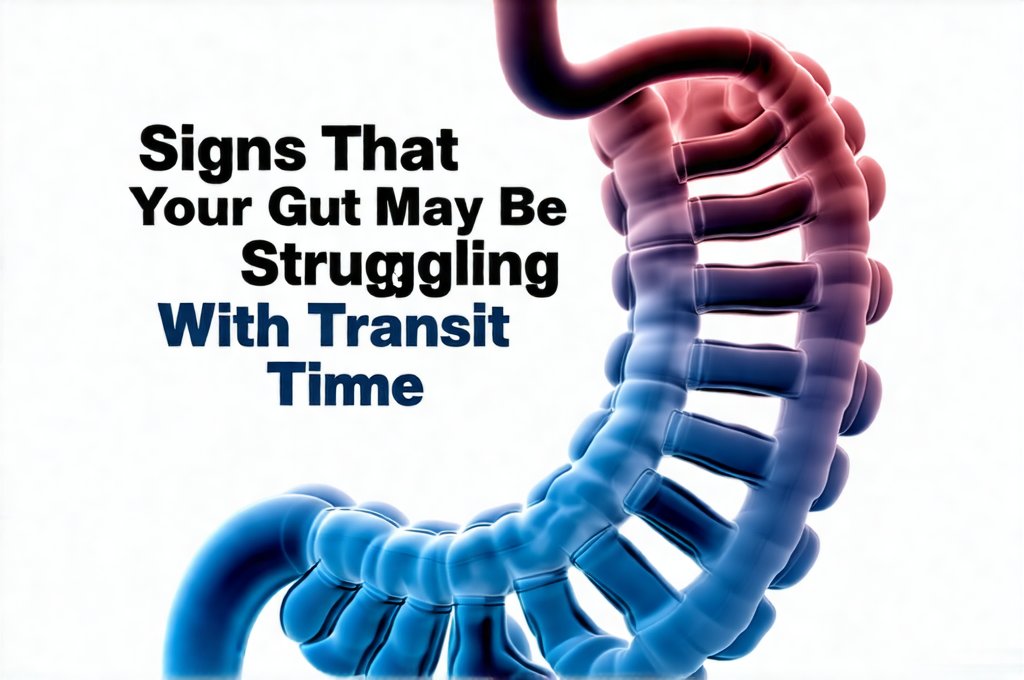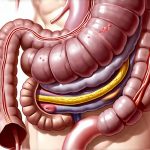Our digestive system is often an overlooked workhorse, quietly processing everything we consume to fuel our bodies. We typically don’t give it much thought until something goes wrong – a bout of bloating, unexpected constipation, or perhaps the opposite, frequent and urgent diarrhea. While these symptoms can be occasional and attributable to temporary factors like dietary changes or stress, persistent disruptions could signal that your gut is struggling with transit time – the speed at which food moves through your digestive tract. Understanding this crucial aspect of gut health is vital for overall wellbeing, as it impacts nutrient absorption, waste elimination, and even mental health. It’s not simply about “regularity,” but about a balanced and efficient system.
Transit time isn’t a fixed number; it varies from person to person and depends on factors like diet, hydration, activity level, metabolism, and underlying health conditions. Generally, the entire digestive process should take anywhere between 24 to 72 hours. However, when this process is consistently too fast or too slow, it can lead to a cascade of uncomfortable symptoms and potentially more serious long-term health issues. Recognizing the signs that your gut’s transit time might be off is the first step towards addressing it and restoring digestive harmony. This article will explore those signals, offering insights into what they could mean and suggesting avenues for further exploration.
What is Gut Transit Time & Why Does It Matter?
Gut transit time refers to the duration it takes for food to travel from ingestion to elimination. As mentioned earlier, this isn’t a rigid timeframe, but significant deviations can indicate underlying issues. Slow transit means food lingers in your digestive system for too long, potentially leading to constipation, bloating, and an increased risk of bacterial overgrowth. Conversely, rapid transit results in food moving through too quickly, often causing diarrhea, nutrient malabsorption, and dehydration. Both extremes disrupt the delicate balance within the gut microbiome – the trillions of bacteria residing in our digestive tract that play a crucial role in immunity, mood regulation, and overall health.
The speed at which food moves impacts how well we absorb nutrients. If food rushes through, vital vitamins and minerals don’t have enough time to be properly absorbed into the bloodstream. This can lead to deficiencies over time, impacting energy levels, immune function, and even cognitive abilities. Conversely, a slow transit time allows for greater nutrient absorption, but also provides more opportunity for fermentation and gas production by gut bacteria, contributing to bloating and discomfort. Maintaining optimal transit time is about finding that sweet spot where nutrients are efficiently absorbed without excessive fermentation or stagnation. can you build a tolerant gut through dietary choices can significantly impact this process.
Ultimately, healthy gut transit time is essential for digestive comfort, nutrient uptake, and a thriving microbiome. It’s an often-overlooked component of overall health but one that profoundly impacts our wellbeing. Paying attention to your body’s signals and addressing any imbalances can significantly improve your quality of life. If you suspect there’s something more going on, it might be time to explore signs that acid is affecting your health.
Recognizing Signs of Slow Gut Transit
Identifying slow gut transit isn’t always straightforward, as symptoms can be subtle or mimic other conditions. However, several key indicators suggest your digestive system might be moving at a sluggish pace. One of the most obvious signs is constipation – infrequent bowel movements (less than three times per week), difficulty passing stool, and feeling of incomplete evacuation. But constipation alone isn’t always indicative of slow transit; it could also result from dehydration or low fiber intake. What differentiates slow transit constipation is often its persistence despite adequate hydration and fiber consumption.
- Bloating and abdominal discomfort are common companions to slow transit. As food ferments in the colon for longer periods, gas production increases, leading to a feeling of fullness, distention, and cramping.
- Changes in stool consistency – hard, dry stools that are difficult to pass – are another telltale sign.
- Other less obvious symptoms can include fatigue, skin issues (like acne or eczema), and even mood swings, as the gut microbiome is closely linked to brain health.
If you experience these symptoms consistently, it’s worth exploring potential causes of slow transit. These could range from dietary factors like low fiber intake and dehydration to underlying medical conditions such as hypothyroidism, irritable bowel syndrome (IBS) with constipation, or certain medications. Addressing the root cause—often through lifestyle adjustments—is key to restoring healthy gut transit time. signs your medication may be contributing to digestive issues should also be considered.
Recognizing Signs of Rapid Gut Transit
Rapid gut transit, on the other hand, presents a different set of challenges. The hallmark symptom is diarrhea – frequent, loose, watery stools. However, unlike temporary diarrhea caused by food poisoning or infection, rapid transit diarrhea tends to be more persistent and can occur even without an obvious trigger. This often leads to feelings of urgency and difficulty controlling bowel movements, disrupting daily activities and causing considerable anxiety.
- Nutrient deficiencies are a significant concern with rapid transit. Because food moves through the digestive system too quickly, there isn’t enough time for proper nutrient absorption. Symptoms of these deficiencies can include fatigue, weakness, brittle nails, and impaired immune function.
- Abdominal cramping and bloating can also occur with rapid transit, albeit different in character from slow transit bloating – more associated with gas production from undigested food.
- Dehydration is a major risk factor as the body loses fluids through frequent bowel movements. This can lead to dizziness, headache, and decreased energy levels.
Common causes of rapid gut transit include dietary factors (like excessive caffeine or artificial sweeteners), stress, anxiety, certain medications, and underlying conditions like IBS with diarrhea, inflammatory bowel disease (IBD), or food intolerances. Identifying the trigger is crucial for managing symptoms and preventing long-term health consequences. gut bacteria imbalance can also play a role in rapid transit, so exploring this connection is worthwhile.
Lifestyle Strategies to Support Healthy Gut Transit
While it’s important to consult a healthcare professional if you suspect significant issues with your gut transit time, there are several lifestyle changes you can implement to support healthy digestion and optimize bowel regularity. Diet plays a pivotal role. Increasing fiber intake through whole grains, fruits, vegetables, and legumes is essential for both slow and rapid transit – it adds bulk to stool, promoting regular movements, and feeds beneficial gut bacteria. However, increasing fiber too quickly can exacerbate symptoms, so do so gradually. Staying adequately hydrated is also crucial; water helps soften stools and facilitates their passage through the digestive tract.
- Aim for at least 8 glasses of water per day, or more if you’re active or live in a hot climate.
- Regular physical activity stimulates intestinal muscles, promoting healthy gut motility. Even moderate exercise like walking can make a difference.
- Managing stress levels is paramount. Chronic stress can disrupt the digestive process and contribute to both slow and rapid transit. Techniques such as yoga, meditation, or deep breathing exercises can help mitigate these effects.
Consider incorporating probiotic-rich foods (like yogurt, kefir, sauerkraut) or supplements into your diet to support a healthy gut microbiome. Probiotics introduce beneficial bacteria that aid in digestion and overall gut health. Additionally, identifying and eliminating food intolerances can significantly improve symptoms. Keeping a food diary and tracking your bowel movements can help pinpoint problematic foods. weekend habits may unexpectedly impact gut health, so be mindful of these patterns. Remember to also consider signs that your acid reflux is worsening if you experience concurrent symptoms.
It’s important to remember that digestive health is complex and individualized. What works for one person may not work for another. Pay attention to your body’s signals, make gradual lifestyle adjustments, and seek guidance from a healthcare professional if you have concerns about your gut transit time or experience persistent symptoms. Prioritizing gut health isn’t just about physical comfort; it’s about investing in your overall wellbeing and vitality. signs that your body isn’t digesting properly overnight can also be a signal to investigate further.


















